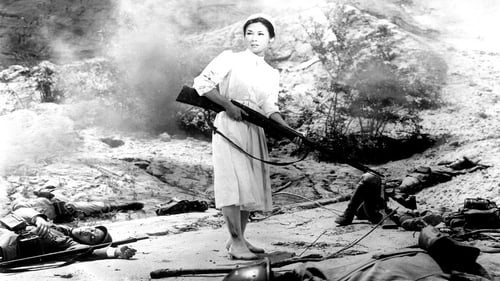
Head Nurse Iwashima
사쿠라는 2차대전 말기의 중국에 있는 야전병원에서 간호사로 근무하며, 군의관을 도와 수많은 절단 수술을 돕는다. 광기 가득한 지옥과 같은 곳에서 손발이 잘려 시체처럼 내팽겨진 부상자들에게 그녀는 연민을 느끼고, 군의관과도 사랑에 빠진다. 절망에 빠진 병사들에게 몸을 허락하지만, 진정한 사랑을 갈망하는 여자의 본능을 그린 이색작으로 프랑스에서도 높은 평가를 받은 작품이다.
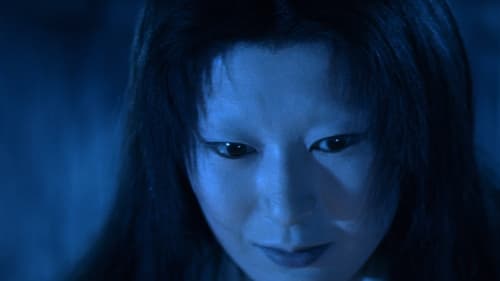
Mother (segment "Kurokami")
고이즈미 야쿠모의 괴기담 중에서 4편의 에피소드를 영상으로 옮긴 옴니버스 영화. 출세를 위해 아내를 버리고 떠났던 무사(‘흑발’), 눈보라 속에서 설녀를 만나 목숨을 건진 청년(‘설녀’), 귀신을 피하기 위해 불경을 몸에 써넣는 맹인 악사(‘귀 없는 호이치’), 찻잔 속에서 기묘한 얼굴을 본 무사(‘찻잔 속’)의 이야기가 오싹한 공포와 함께 펼쳐진다. 환상적인 색채와 표현적인 세트를 이용한 뛰어난 미술과 촬영이 돋보이며, 다케미쓰 도루의 실험적인 음악 또한 탁월하다. 에 이어 두 번째로 칸영화제 심사위원특별상을 수상했다.
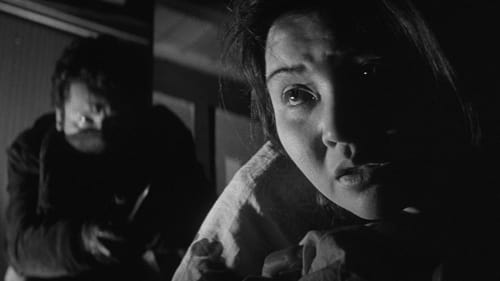
Tadae Takahashi
사다코는 소심한 남편과 시어머니에게 부주의하다며 매번 꾸중을 듣는다. 그녀는 남편이 출장간 사이에 집에 침입한 히라오카라는 남자에게 강간을 당한다. 이에 사다코는 자살을 시도하지만 아들 때문에 감히 죽지 못한다. 이틀 후 히라오카는 다시 돌아와 사다코를 범하며 그 후로 사다코에게 강박적인 애정을 추구한다. 사다코는 히라오카를 떼어내기 위해 돈을 줘보기도 하지만 히라오카는 거절한다. 후지하라의 원작을 하세베 게이지와 이마무라 감독이 함께 각색해서 만든 작품. 이마무라 감독의 작품들, 예컨데 등에 등장하는 여성들은 사회적인 약자로 남성에게 강간을 당하거나 모진 수난을 겪기 일수다. 하지만 어떤 어려움 속에서도 좌절하지 않고 당당하고 강한 모습으로 거듭나는 것으로 그려져 이마무라 감독의 일관된 작품관과 여성관을 엿볼 수 있게 한다.

Wakae is a 15 year old girl who lived under the same roof with her alcoholic father and stepmom. Her mother had died years ago. She spends her nights at a rundown bar, sharing drinks and cigarettes with the lowlife drunks. She has nowhere to turn and no one to talk to, until she is reunited with her childhood friend, Saburo, who brings warmth to her heart.

Junichi's mother
School teachers responsible for the lives of their students work to evacuate Allied bombings near the end of WWII.

Emi Ikushima, a star actress in the Roses, is half-hearted, but she wasn't disappointed by the news of her father Enmy's sudden death, and she performed enthusiastically on the stage that night, attracting a crowded audience.
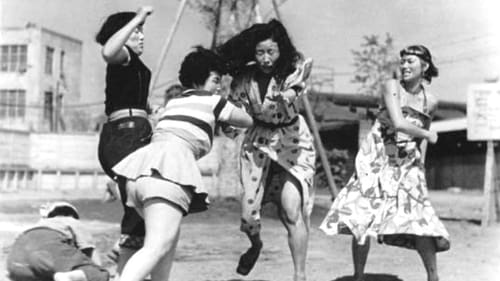
Toku, a factory worker gives food to a starving woman, Tsuru, who then follows him home. He shares a shack in a shanty village in Kawasaki with his friend Pin-chan. The two men try to get rid of her but then let her stay when she gives them money. Tsuru tells the people of the village that she lost her job due to a strike, then was robbed of her severance pay, then sold to a brothel in Tsuchiura. She ran away with a friend from Kawasaki. Toku and Pin-chan sell her to a geisha house and spend the money. She is thrown out. The owner demands his money back. Tsuru earns the money to pay their debt by working as a prostitute outside the station. The other prostitutes beat her. She fends them off with a policeman's revolver and is then shot dead by the police.

妻・こと
Woman melodrama by Shiro Toyoda
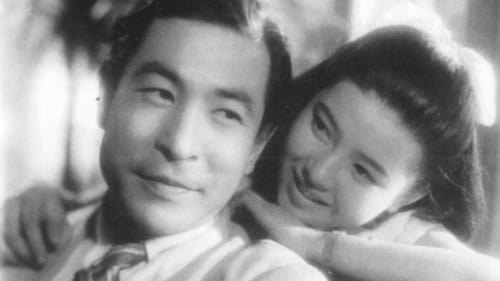
During his summer holiday, Kawasaki Ryuichi (Ryuzaki Ichiro), a handsome engineer in his late twenties, visits his teacher and mentor, Professor Inagaki (Sugai Ichiro), at his seaside home. There he meets the professor's lovely young wife, Sachiko (Hamada Yuriko), and is unsettled by the striking resemblance she bears to his wife, who died three years earlier. Attracted to Sachiko, he does his best to hide his feelings. The couple, however, senses a deep-seated melancholy in him. Attributing it to the loss of his wife, they urge him to marry their niece, Kaoru, but he is not interested. Shortly after, Fumiko , Sachiko's older sister, realizes that Sachiko and Kawasaki have feelings for each other, but she keeps her counsel. One day Kawasaki, Sachiko, and Kaoru go boating when a storm forces them to stay overnight at a hotel. Unable to sleep, Kawasaki takes a walk along the beach where he finds Sachiko, also unable to sleep. He declares his love for her.
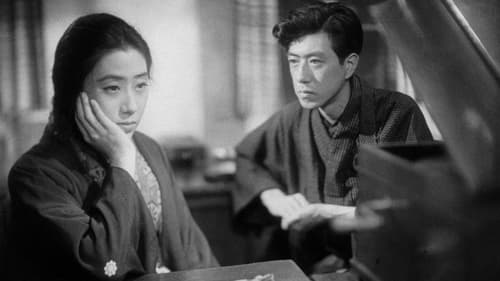
Mrs. Itsuko
Sumako, a country girl, becomes a great actress with the help of Hogetsu,a scholar who brought some of European realism to the Japan's stage. The relationship leads to the end of his marriage and the breakup of his Arts Society. This is another version of Kenji Mizoguchi's film "The Love of Sumako the Actress" ("Joyû Sumako no koi"), from the same year. Both tells the story of the famous actress Sumako Mitsui (1886-1919), considered the first great modern theater actress in Japan. Mizoguchi himself is said to have preferred Kinugasa's version.

Akane
This film focuses on Koreans living in Japan. The filmmaker’s humanism comes across in the portrayal of a girl living in a shabby tenement, the warmth of a Korean girl she meets, and the friendliness of this Korean girl’s family.

Hatsu
Movie about a devoted and single woman and her daughter. The mother's nickname is "Bokuseki" (wooden head) because of his supposed stubbornness. No.10 in the list of "The 10 best films of 1940" by Kinema Junpo.

Okumura Ioko story directed by Shiro Toyoda
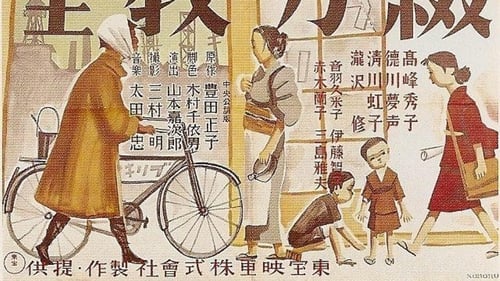
The teacher's wife
Based on an autobiographical story by Toyota Masako.
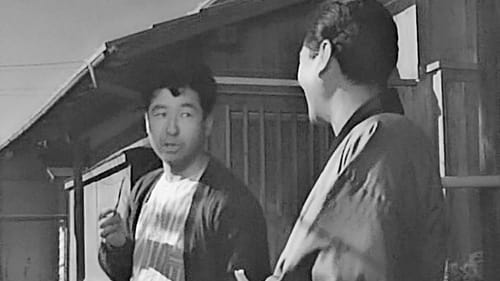
Shigeyo (Hisako)
As suggested by the title, this film takes up the theme of the city, beginning with a series of traveling shots from Chiyo's point o view on a bus leaving the countryside and entering the metropolitan cityscape. After some fruitless job hunting in downtown Tokyo, Chiyo accepts a job as a bar hostess in Shiba ward. Well away from glamorous Asakusa and Ginza, this is a neighborhood bar where the women are dirt poor, each having only one kimono to their name....

Okimi
Adaptation of Fumiko Hayashi's novel.











